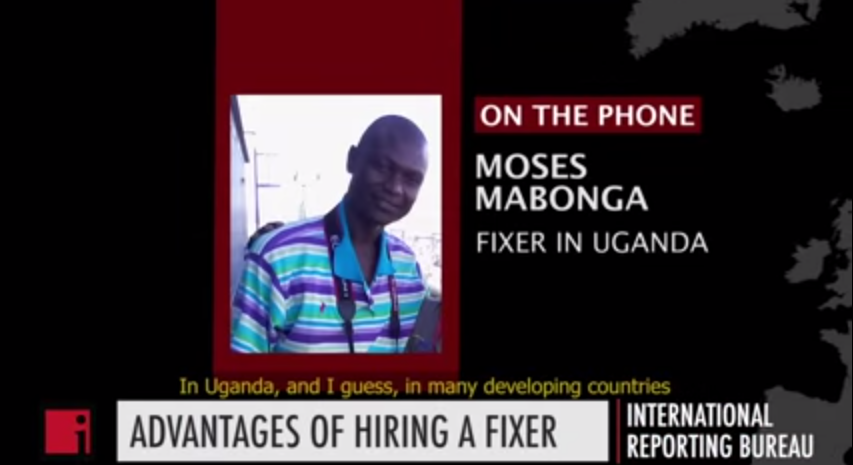Moses Mabonga breaks down the difficulties of being a fixer for foreign reporters in Uganda.
By IRB Staff
“Fixer.”
It’s a term given currency by foreign correspondents in the later years of the last century to describe, and recognize, the evolving role that on-the-ground helpers have played since western journalists first ventured offshore.
Journalist Henry Morton Stanley—he of “Dr. Livingstone I presume” fame—would never have made it off the East African beach without the assistance of hired cultural help, ranging from a former slaves to boatmen, and even “a boy from Jerusalem.” The fact they never got much credit undoubtedly had something to do with the era, but Australian academic and former editorial handler of correspondents Colleen Murrell notes even more recent biographies tend to play down the role of fixers in favour of the romanticized self-image of the lone correspondent abroad.
All that changed in Iraq, where the fixer began to evolve beyond logistics and linguistic gopher into a growing partner in the editorial process.
In her recently published book, Foreign Correspondents and International News Gathering – The Role of Fixers, Murrell studied the practices of TV correspondents in conflict areas, and found that 90 per cent would not move without a fixer. In this they echoed the words of CBC Middle East correspondent Saša Petricic who, in a winter debrief with the J-Source IRB, credited his fixer with not only being vital for news gathering, but also for nosing out subtle changes in crowd body language before bad things happened to the oblivious reporter. This is clearly not a master-servant relationship.
The line between fixers and journalists is becoming less and less defined. More frequently they are taking on larger roles in reporting—acting as assistants in both the reportage of stories and taking roles in production—sometimes shooting footage, conducting interviews, taking photos and acting as de facto-field producers.
Who are the fixers of 2015? Murrell says they are more often than not local journalists, well educated, exquisitely sophisticated in terms of what their clients want, and the most likely candidates for the next generation of correspondents working for cash-strapped western media.
The J-Source IRB’s Marielle Torrefranca interviewed just such a fixer, when she spoke to Moses Mabonga who fixes for reporters visiting Uganda. She found out exactly how difficult a fixer’s job can be when trying to help a documentary team report on a subject that was not only taboo, but illegal in the country from where they report.

